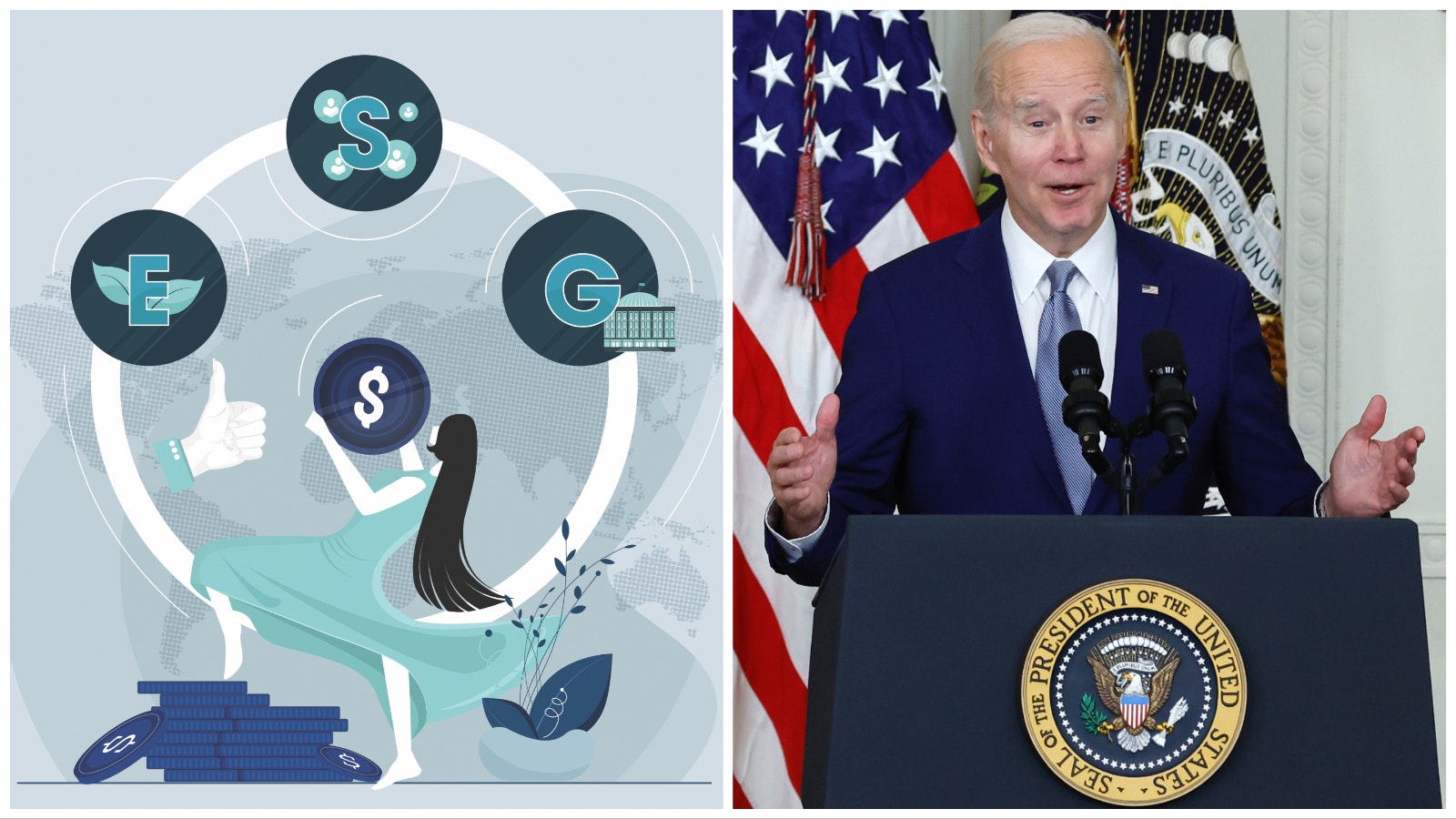In the wake of a continued pressure to consider environmental impacts of financial investments, including President Joe Biden’s support of the practice, financial planners say people can take control of their own investment plans.
As he promised, Biden vetoed a bipartisan bill that would’ve shot down a U.S. Department of Labor rule allowing consideration of progressive political values in retirement fund investing through environment, social and governance (ESG) ratings.
Sometimes called “woke capitalism,” ESG measures rate funds on various markers of progressive-friendly policies related to protecting the environment, diversity in the workplace and community relations. Any association with fossil fuel industries quickly gets a fund rated down. Timber industries, gun manufacturers and agricultural businesses also face pressure from the movement.
Critics of the ESG movement say it has become a formidable mechanism in pushing progressive policies by financially starving companies that don’t comply with ESG standards. In this way, the ESG movement has been able to push progressive policies without legislative process.
Not A Mandate
Earlier this month after the bipartisan bill passed, the White House said in a statement that the use of ESG doesn’t conflict with fiduciary responsibilities and that the department rule isn’t a mandate. It only grants fund managers the option of factoring in ESG considerations when investing.
Biden tweeted a video of himself discussing the veto Monday.
“This bill would risk your retirement savings by making it illegal to consider risk factors MAGA House Republicans don’t like,” Biden said. “Your plan manager should be able to protect your hard-earned savings — whether Rep. Marjorie Taylor Greene likes it or not.”
Biden didn’t explain how considering progressive politics when making financial decisions risked hard-earned savings.
Individual Action
Alex Stevens, manager of policy and communications for the Institute for Energy Research, told Cowboy State Daily that people can take the fight against ESG into their own hands regarding their own retirement savings.
Since 2017, Stevens said, ESG funds have averaged an annual return about 2% less than the broader market.
The lower performance of high-rated ESG funds should concern people whose retirement savings depend on fund managers seeking the highest rate of return for their investments.
“It’s incumbent on people to talk with the institutions that handle their retirement funds. They can express their concerns about ESG, and they can make it clear to the people that are handling their money that they want them to focus on maximizing returns and not on politics,” Stevens said.
Stevens said that large institutions might not respond to a single person’s concerns, but if enough people voice their opposition to mixing politics and investing, managers will start to get the message.
State Action
While the president is stonewalling efforts to push back against ESG on the federal level, state-level efforts continue.
Because the movement has had a large impact on the oil, gas and coal industries, Wyoming has a history of fighting against ESG policies.
In 2018, when Gov. Mark Gordon was treasurer, he criticized Bank of the West for its anti-fossil fuel investment pledges and said he’d restrict the state’s willingness to do business with the institution.
Most recently, Gordon joined 18 other governors in signing a letter that pledged a coordinated effort, led by Florida Gov. Ron DeSantis, to oppose the use of ESG in public financial decisions.
In January, Wyoming joined a 25-state coalition to sue the Department of Labor over its proposed ESG rule.
“This rule is contrary to longstanding federal law and fiduciary principles that require fiduciaries to place their clients’ financial interests first,” Gordon said in a statement announcing the suit.
The Wyoming Legislature had considered two anti-ESG bills in the session that ended earlier this month.
The bills passed the state Senate but the House never held a hearing on either bill after the House Appropriations Committee recommended the bills not pass, which pushed them to the lowest priority for bills on the floor.
Agriculture Is Next
Sen. Dan Laursen, R-Powell, who co-sponsored one of the ESG bills, told Cowboy State Daily that the influence of ESG could spread beyond energy industries and into agriculture, another key economic driver in Wyoming.
“It’s going to affect us all individually here pretty quickly, I think,” Laursen said.
A proposed Security and Exchange Commission rule would require public companies to disclose the costs to their business caused by climate related events such as floods, droughts and forest fires.
Critics of the rule have expressed concern that agricultural lenders may be required, if the rule becomes final, to ask farmers to provide data assessing their potential impacts to the climate.





